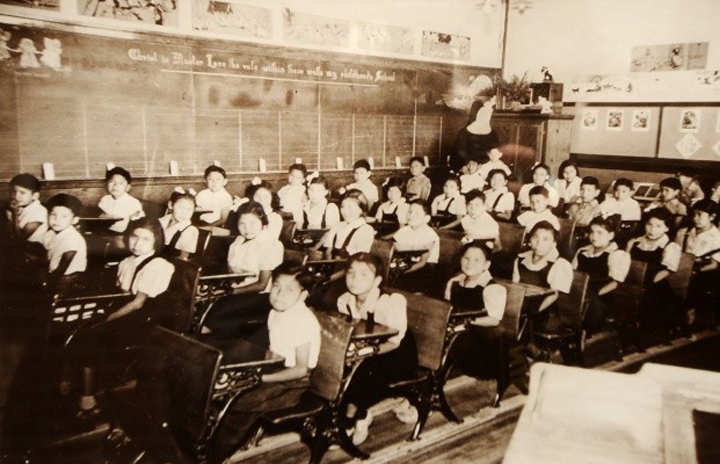WINNIPEG – The organization that awards settlements in Indian residential school abuse cases has gone to court to try to stop victims from being charged thousands of dollars in extra fees.

The issue involves more than 30 lawyers and agencies across Canada that work to help survivors of physical, sexual and emotional abuse fill out forms to file for compensation.
Dan Shapiro, chief adjudicator of the Independent Assessment Process, said there’s evidence to suggest some people are being charged too much for that work.
“The chief adjudicator is concerned that charging … claimants form-filling fees … stands to frustrate the intent and purposes of the Indian Residential Schools Settlement Agreement and subvert the measures in place to ensure that claimants receive the full benefits of the settlement,” reads the factum submitted in the case.
Lawyers for the chief adjudicator were in Manitoba Court of Queen’s Bench last Friday seeking an order that claimants should only have to pay approved legal fees. The limit on such fees is 30 per cent of an award. The federal government and claimant split the cost.
The chief adjudicator’s office is seeking direction on whether it can ban lawyers and form-filling companies “engaged in inappropriate conduct” from the claims process, and whether it can claw back any excessive fees that have already been paid out.
It also wants a court order to force all lawyers involved in claims to disclose whether they have used form fillers and the fees that were charged to survivors.
The test case involves Winnipeg lawyer Ken Carroll and a form-filling company called First Nations Residential School Solutions. The ruling is pending and could be applied across the country.
- Posters promoting ‘Steal From Loblaws Day’ are circulating. How did we get here?
- Video shows Ontario police sharing Trudeau’s location with protester, investigation launched
- Canadian food banks are on the brink: ‘This is not a sustainable situation’
- Solar eclipse eye damage: More than 160 cases reported in Ontario, Quebec
Carroll and officials with the company were not available for comment.
The $5-billion residential schools settlement agreement is believed to be the largest class-action settlement in Canadian history. It is designed to resolve claims of abuse at more than 130 residential schools across the country out of court.
The Merchant Law Group, which has handled thousands of the claims, is opposing the chief adjudicator’s request.
Senior partner Tony Merchant said the matter is outside the court’s jurisdiction.
If survivors aren’t satisfied with the way their file has been handled, they can sue the lawyer or go to court to have their fees assessed, he said.
“The chief adjudicator was not made by the agreement into a protector of the victims,” said Merchant, who added that his firm does not use form fillers.
“The judge doesn’t have the power to grant those orders.”
Merchant said form fillers have played an important role in handling claims because they work in remote communities and are often aboriginal people who can help bridge language and cultural challenges.
He said many residential school survivors are old, aren’t aware of the compensation program and distrust the justice system.
“What’s crucial here is the vast majority of these people would not have been receiving one nickel but for the fact of these form fillers,” Merchant said. “They haven’t done anything wrong.”
Since 2000 the Canadian Bar Association has urged lawyers to treat former students of Indian residential schools as people who need healing as well as legal assistance. It also suggested that law societies which regulate legal professionals in different jurisdictions adopt model guidelines for lawyers acting for former students.
In 2007 the association raised concerns about a small number of lawyers charging students “seemingly excessive fees.” It noted such actions could tarnish the reputation of the legal profession.
Meaghan Conroy, a bar association spokeswoman, said it’s troubling if the chief adjudicator’s allegations are true.
“We know that in every walk of life and profession there are bad apples,” she said Wednesday. “Thankfully we have the courts and the law societies to protect clients and individuals from lawyers who break the rules.”
— By John Cotter in Edmonton



Comments